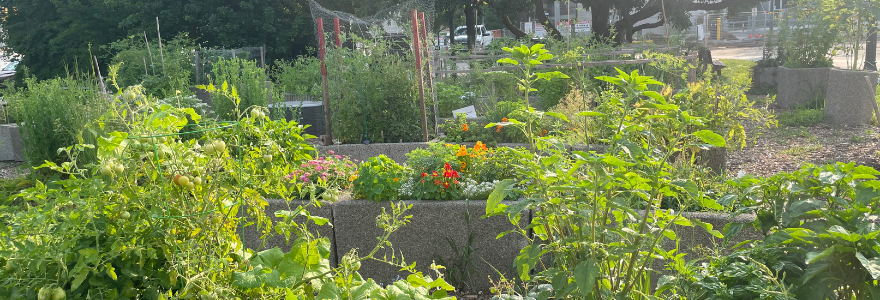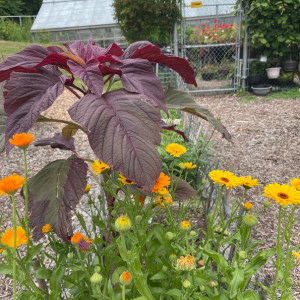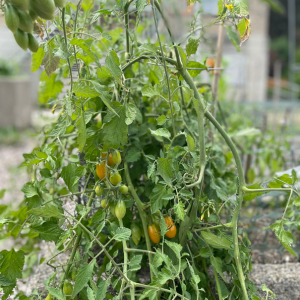Western Community Garden

About the Garden
 The Western Community Garden is a collaborative initiative amongst the Western campus community. The garden showcases Western’s commitment to sustainability and creative reuse. Old outdoor waste bins were transformed into raised planters, while concrete curbs removed to improve pedestrian and cycling routes were repurposed to build the garden’s infrastructure. In addition to these raised features, the space includes in‑ground garden plots that support teaching, research, and hands‑on learning through the Department of Geography and Environment’s Sustainable Resource Management (SRM) Lab.
The Western Community Garden is a collaborative initiative amongst the Western campus community. The garden showcases Western’s commitment to sustainability and creative reuse. Old outdoor waste bins were transformed into raised planters, while concrete curbs removed to improve pedestrian and cycling routes were repurposed to build the garden’s infrastructure. In addition to these raised features, the space includes in‑ground garden plots that support teaching, research, and hands‑on learning through the Department of Geography and Environment’s Sustainable Resource Management (SRM) Lab.
The Western Community Garden: Resource Document is full of helpful information that serves as an introduction to gardening in the Community Garden or if you want to get growing at home!
Garden plots are offered on a first‑come, first‑served basis. Sign‑ups open in April 2026 and will be available through this page.
Please email sustainability@uwo.ca with any questions about the garden.
Education and Research at the Community Garden
The Community Garden also serves as a hub for innovation and experiential learning, supporting four Campus as a Living Lab projects that integrate sustainability into teaching and research. As an outdoor classroom and living lab, the garden provides students and faculty with opportunities to study native plants, food systems, soil health, and sustainable resource management practices.
Students from the Faculty of Health Sciences conducted research exploring how a campus community garden can support health, well‑being, and connection among students, staff, and faculty. Their findings highlighted four key themes: the garden as a welcoming “third place” that fosters belonging; its role in deepening connection to nature; the sense of empowerment that comes from growing food; and the way shared gardening activities help strengthen community ties.
Learn more about their findings through their journal article here.


